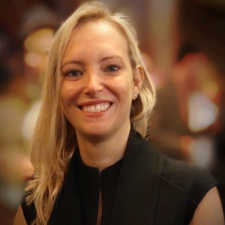Audio is a crucial aspect of video games, enhancing immersion and evoking emotions. A great soundtrack can leave a lasting impact and contribute to the overall experience of a game.
At our Mobile Game Awards, Candy Crush creators King received recognition in two categories. We spoke with Vanesa Tate, King’s director of product and production catalog games, to discuss their Best Audio/Visual Accomplishment award and the risks and rewards of revamping the game’s soundtrack for its 10-year anniversary.
Commitment and Quality
When asked what set King apart in the Best Audio/Video Achievement category, Tate highlighted their commitment to excellence. She and her audio team spent around a year on the audio revamp, putting in extra effort to ensure the best possible experience for players. They produced numerous demos and took a quality-driven approach throughout the process.
Tate expressed gratitude for the recognition and emphasized the importance of updating Candy Crush Saga’s audio, as it hadn’t been refreshed in a decade.
The Candy Crush Revamp
Tate provided insight into the Candy Crush project, explaining that they aimed to revamp the game’s audio while considering players’ memories and overall experience. They recorded 30 minutes of new audio, defining the new soundscape of the game. The final demos were recorded at Abbey Road Angel Studios, resulting in an authentic orchestral sound that enhanced the listener’s experience.
The team’s goal was to create a soundtrack that would provide a relaxing and individualized in-game experience for players, aligning it with their gameplay style.
The Significance of Candy Crush Saga
Tate expressed her appreciation for Candy Crush Saga and its impact on players. During the pandemic, many players found solace in the game, which motivated Tate to revamp the music and sounds to match the emotional arc of the game. She shared that they’ve received feedback from players who credit Candy Crush for helping them through difficult times.
The goal was to improve the overall aural experience and ensure the game resonated with players on a personal level.
Collaboration and Creativity
When discussing the approval process for making changes to such a beloved game, Tate emphasized the importance of collaboration. She praised her talented team and highlighted the need for a strong collective effort to ensure high-quality results. Each team member’s engagement and understanding of the project’s objectives played a crucial role in the revamp’s success.
Tate mentioned the possibility of implementing new features and solutions as technology evolves. She explained their focus on creating a dynamic aural experience, allowing the music to adapt based on the player’s progress and gameplay demands.
The Role of Game Audio
Tate discussed the significance of audio in gaming, particularly its ability to enhance the overall experience. She emphasized how music can influence mood and transport players to the world of Candy Crush, triggering nostalgic memories and creating a rewarding escape. While she couldn’t speak for other games, Tate recommended prioritizing a unique player experience when considering audio design.
The Future of Game Audio
Tate expressed enthusiasm for technological advancements in audio and video games. She mentioned the evolving capabilities of smartphones and spatial audio, allowing for more immersive listening experiences. Tate also highlighted the potential of generative music, personalized experiences through voice recognition, and accessibility features for players with disabilities.
Passion for Innovation
In conclusion, Tate shared her passion for working with creative and technical individuals in various entertainment mediums. She expressed a desire to enrich people’s lives through meaningful experiences and constantly push technological innovation in audio to deliver even better gaming experiences to audiences and players.
